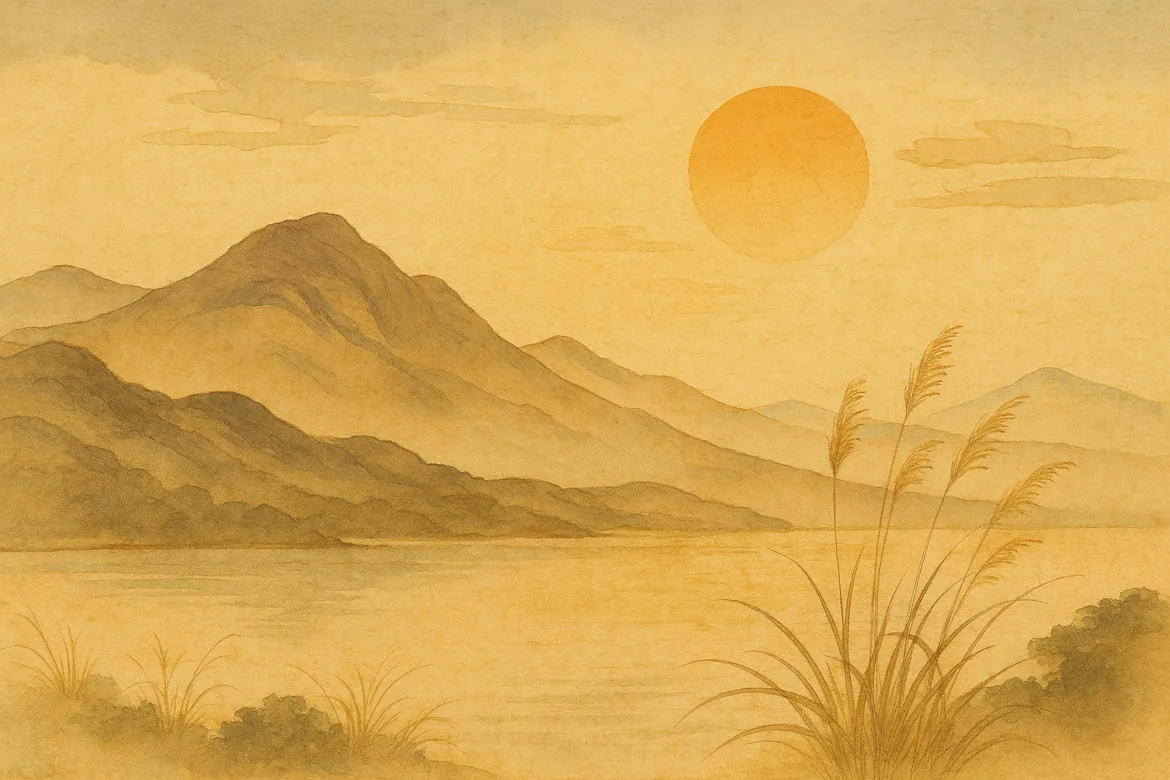In an era dominated by endless news cycles, political outrage, and a gnawing sense of societal unrest, many of us find ourselves overwhelmed, cynical, or simply numb. It can feel as though the world is spinning too fast and too loud, with little space left for reflection, let alone peace.
Amid the noise, Japanese philosophy offers a quiet refuge—a body of thought shaped by centuries of cultural, spiritual, and natural observation that reminds us not to escape reality, but to meet it differently. From the subtle aesthetics of wabi-sabi to the quiet endurance of gaman, these philosophies are not abstract ideals, but lived ways of being that have helped people navigate change, loss, impermanence, and uncertainty for generations.
Table of Contents
Wabi-Sabi: Embracing Imperfection and Transience
The world as we know it is fractured—socially, politically, emotionally. But wabi-sabi invites us to shift our gaze. Rooted in Zen Buddhism, wabi-sabi is the art of finding beauty in the imperfect, the impermanent, and the incomplete. A cracked bowl, a faded leaf, or the melancholy of a grey sky are all celebrated not in spite of their flaws, but because of them.
In a culture obsessed with perfection, polish, and perpetual growth, wabi-sabi is radically countercultural. It teaches us to accept that things—and people—will break, fade, and change. Rather than resisting this, we can learn to see grace in the wear and wisdom in the weathering.

Gaman: Endurance with Dignity
Another deeply resonant concept is gaman, which roughly translates as “enduring the seemingly unbearable with patience and dignity.” It’s not about repression or stoicism for stoicism’s sake. Rather, gaman is a quiet strength—a resilience that doesn’t need to announce itself.
In a time where suffering often becomes a spectacle and every frustration is broadcast online, gaman encourages self-restraint, perseverance, and an inner fortitude. It’s not a call to suffer silently forever, but to endure with integrity, especially when things seem most hopeless.
Ma: The Space Between
Modern life leaves little room for stillness. Our schedules, feeds, and minds are crammed full. But ma—the Japanese concept of negative space—teaches us that emptiness is not absence, but presence. It is the pause that gives meaning to the note, the silence between words that gives them resonance.
Whether in architecture, music, or conversation, ma highlights the importance of space. Applied to daily life, it invites us to reclaim stillness, to breathe, to find the moment between reactions. In a time when division and rage can feel instinctive, ma makes space for thoughtfulness.

Shikata Ga Nai: Accepting What Cannot Be Helped
While fatalistic on the surface, shikata ga nai—“it cannot be helped”—can be incredibly freeing. It doesn’t mean apathy or passivity. It means recognizing when control is an illusion and letting go of resistance to what is.
In the face of endless bad news, this mindset can protect us from despair. It allows for a sober acknowledgment of reality, paired with a clear-eyed focus on what can be changed. We waste less energy wishing things were different, and more energy showing up where it matters.
Ikigai: A Reason for Being
And finally, there’s ikigai—the intersection of what you love, what you’re good at, what the world needs, and what you can be paid for. In an age of meaning-crisis and burnout, ikigai offers a way to anchor ourselves in purpose.
Finding your ikigai doesn’t require radical reinvention. Sometimes it’s found in small acts—a meal cooked with care, a conversation held with presence, a gesture of kindness in a cynical world. Purpose doesn’t have to be grand to be real.
A Soft Rebellion
Japanese philosophy doesn’t shout. It doesn’t offer simple fixes. But in its quietness lies its power. It teaches that peace isn’t something we wait for the world to deliver—it’s something we cultivate inside, even while the world burns.
In times of hysteria, calm is a kind of rebellion. In times of division, compassion is resistance. And in times of despair, acceptance can be the first step toward hope. Perhaps now, more than ever, we need the soft wisdom of Japanese thought—not to escape the world, but to live in it with more grace.

